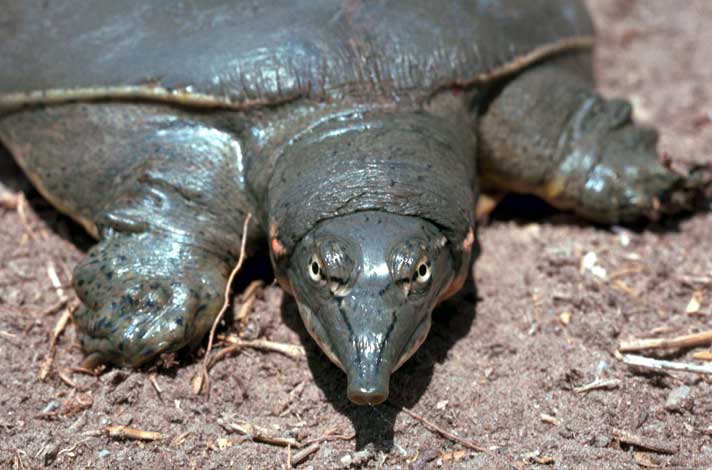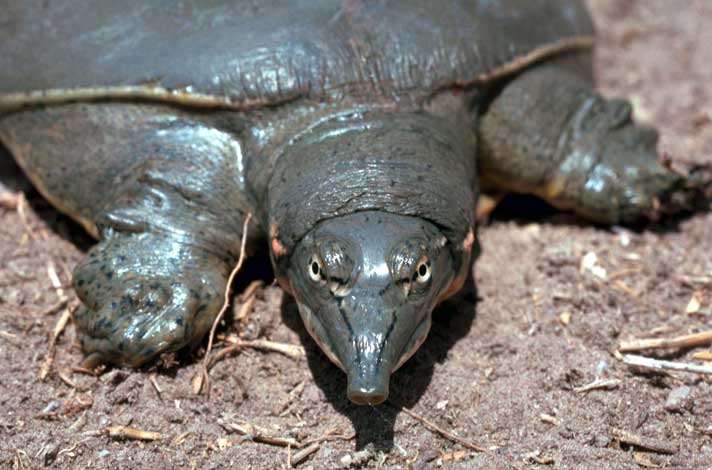It is hoped the unlimited collection of wild turtles is stopped or curtailed in Texas.
The Center for Biological Diversity announced today that the Texas Parks and Wildlife Department, in response to a petition filed by the Center, has agreed to a proposed rule to end the unlimited commercial trapping of wild turtles in the state.

Gary M. Stolz/USFWS
It is hoped that unlimited collection of wild turtles is stopped or curtailed.
Currently, folks on private property in Texas can collect unlimited numbers of common snapping turtles (Chelydra serpentina), red-eared sliders (Trachemys scripta elegans), smooth soft-shell (Apalone mutica) and spiny soft-shell (Apalone spinifera pallida) turtles.
“We’re so grateful these badly needed protections for Texas’ rare, native turtles are moving forward,” Jenny Loda, a Center attorney said in a statement released Nov. 15. “A few for-profit collectors shouldn’t be allowed to put the state’s turtles at risk of extinction. We’re hopeful the Texas Parks and Wildlife Commission will do the right thing and ban this harmful turtle trade.”
Want To Learn More?
Missouri Takes Steps To Ban Commercial Hunting Of Three Turtle Species
Ban On Collection Of Snapping Turtles, 13 Other Species Urged In Arkansas
Turtle Hunting Banned In Alabama
In 2007, the state amended its regulations to protect freshwater turtle collection on public lands and waters, but the change in regulations protected the reptiles on just 2.2 percent of the water bodies in the state, according to the Center. The Center noted in its Nov. 15 press release announcing the agreement with the state, that current turtle collection is likely unsustainable.
Carter Smith, the executive director of the Texas Parks and Wildlife Department, said “there is sufficient scientific justification at this time to proceed to rulemaking to end the unlimited commercial collection of freshwater turtles.”
According to the Center, millions of turtles classified as wild-caught are exported out of the country every year to supply the food and the so-called medicinal markets in Asia, to satiate the appetite for these reptiles. The Center also noted that the meat of these turtles are often laced with mercury, PCBs, and pesticides due to the fact that they bioaccumulate toxins from prey items and often live in contaminated sediment.
“The future of Texas turtles is now in the hands of the Department of Parks and Wildlife and wildlife commissioners,” Loda said. “We’re pleased the department is taking this step toward restricting commercial turtle collection. We urge the commission to fully and finally protect these animals as an invaluable part of state ecosystems.”



